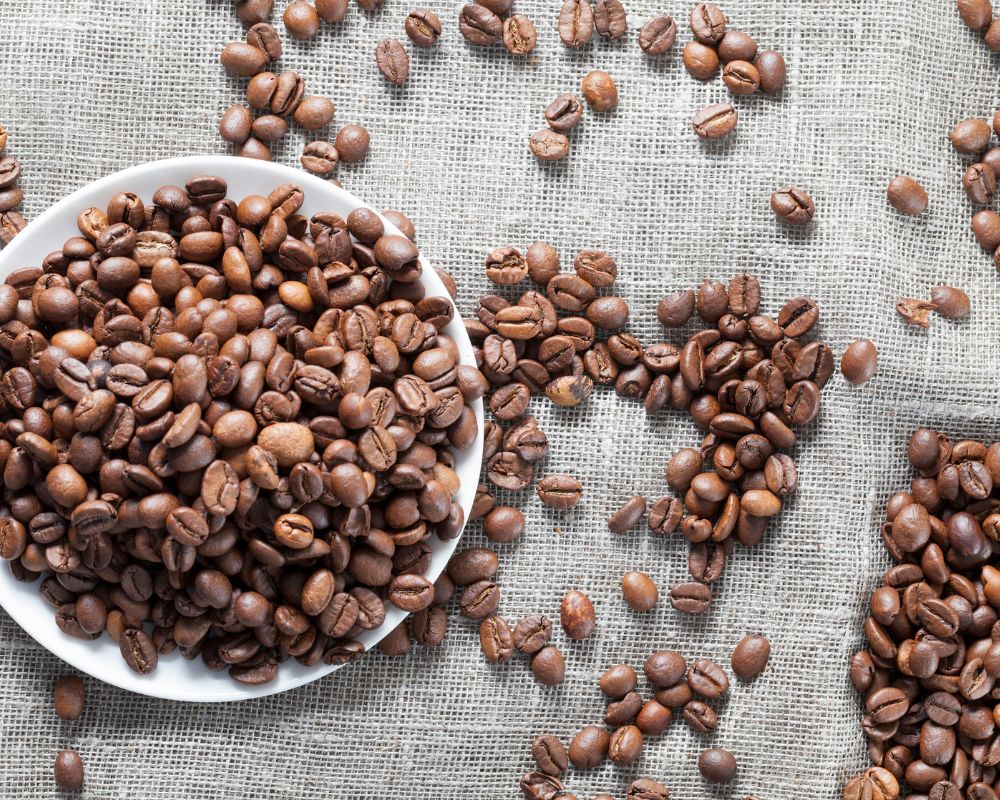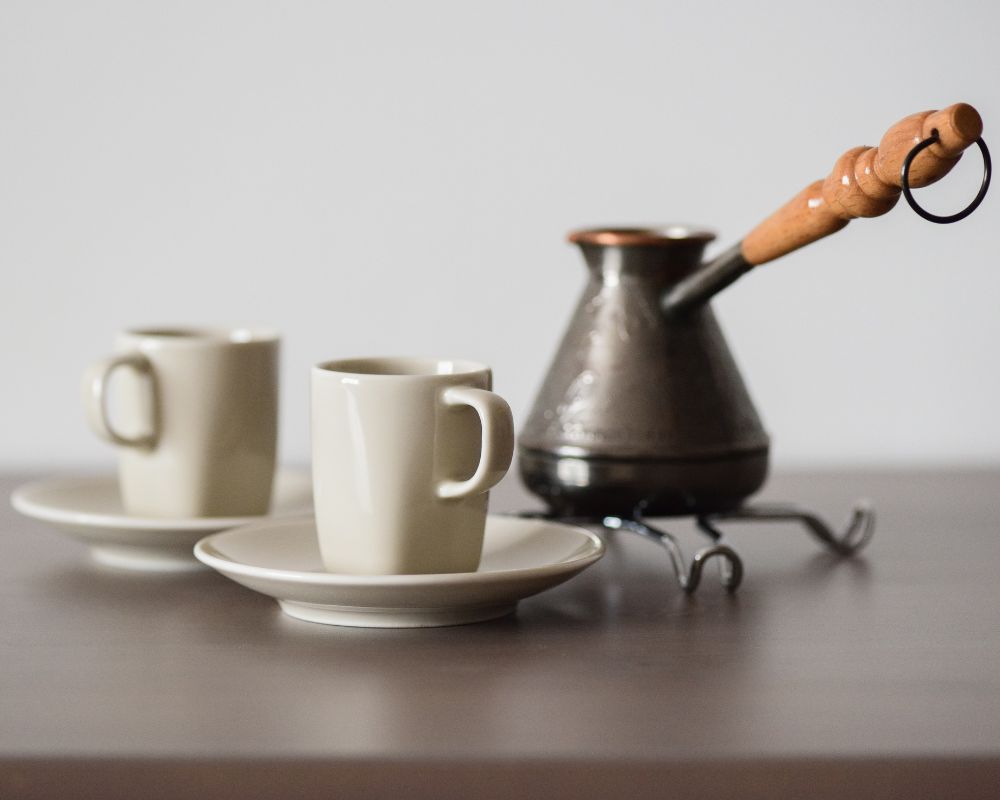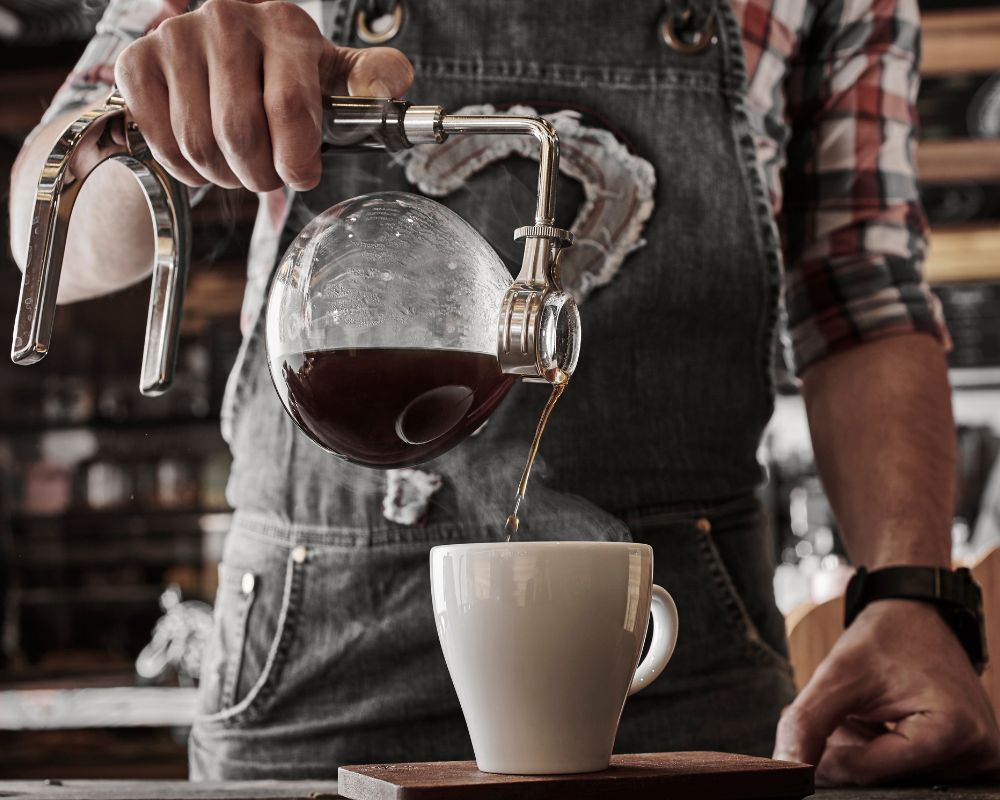How to make coffee less bitter. Did you know that bitterness is one of the most common complaints about coffee? Whether enjoying a cup at home or grabbing a daily dose from your favorite coffee shop, the bitter taste can often be overpowering and detract from the overall experience.
But fear not! In this comprehensive guide, we’ll share expert tips and techniques on how to make coffee less bitter. From choosing the right coffee beans to adjusting your brewing method, we’ll uncover the secrets to achieving a smoother and more enjoyable cup of coffee every time.
So, if you’re tired of the bitter aftertaste and looking to elevate your coffee game, read on to discover effective methods for reducing bitterness in coffee and making every sip a delight.
Understanding the Causes of Bitterness in Coffee
To effectively reduce the bitterness in your coffee, it’s important to understand what causes it. Several factors contribute to the bitter taste of coffee, including the type of coffee beans used, the brewing method, and water quality. By understanding these causes, you can make informed decisions to minimize bitterness in your brew.
Choosing the Right Coffee Beans for a Smoother Taste

Arabica vs. Robusta: Which is Less Bitter?
When selecting coffee beans for a smoother and less bitter taste, it’s essential to consider the differences between Arabica and Robusta varieties. Arabica coffee beans are renowned for their gentle taste and lower acidity, making them a top pick for those who prefer milder and less bitter coffee. In contrast, Robusta beans typically have a stronger and more bitter flavor because of their higher caffeine content and lower sugar levels. Thus, choose Arabica beans instead of Robusta if you want to minimize bitterness in your coffee.
The Impact of Bean Origin and Roast on Bitterness
Apart from the type of beans, the origin and roast level also play a significant role in the bitterness of your coffee. Coffee beans from different regions possess distinctive flavor characteristics due to soil, climate, and altitude variations. For instance, beans from Central and South America often offer a more mellow and balanced flavor, while those from Africa can impart vibrant fruity or floral notes. Additionally, the roast level affects bitterness, with darker roasts generally exhibiting more intense and bitter flavors than lighter roasts. Experimenting with different origins and roast levels can help you find the perfect balance between taste and bitterness.
Single-Origin vs. Blends for Reducing Bitter Taste
Another consideration when choosing coffee beans to reduce bitterness is choosing single-origin or blended varieties. Single-origin coffee is sourced from a specific region or farm, allowing you to explore that particular area’s unique flavors and characteristics. These beans often undergo less processing and can provide a more nuanced and less bitter taste. On the other hand, coffee blends combine beans from different regions to create a harmonious and well-balanced flavor profile. Blends can mitigate bitterness from individual beans and offer a smoother, more enjoyable cup of coffee. Ultimately, the choice between single-origin and blends depends on your preference and desired bitterness reduction level.
The Importance of Water in Brewing Coffee
The water quality is crucial when making a great cup of coffee, as it can greatly affect the taste and bitterness of the brew, just like the choice of coffee beans. Understanding the relationship between water and coffee is essential for achieving a smooth and enjoyable cup.
How Water Quality Affects Coffee Flavor
The composition of water, including its mineral content and pH levels, can affect the overall taste of your coffee. Water with high mineral content, such as hard water, can produce a more pronounced and bitter flavor. On the other hand, water with low mineral content, like soft water, can lead to a flat and dull taste. It’s important to strike a balance using water with moderate mineral content to achieve the optimal flavor profile.
Additionally, the purity of water plays a crucial role in coffee flavor. Water with impurities or off-flavors can negatively impact the taste of your brew. Investing in a good water filtration system or filtered water can help ensure the best coffee flavor.
Temperature and Coffee Bitterness: Finding the Sweet Spot
The temperature at which you brew your coffee also significantly affects its bitterness. Brewing coffee with too hot water can result in over-extraction, leading to a more bitter and astringent taste. On the other hand, brewing with too cold water may result in under-extraction, causing the coffee to taste weak and lacking in flavor.
To achieve a balanced and less bitter cup of coffee, brewing at the ideal temperature range of 195-205 F (90-96 C) is important. Experimenting with different temperatures within this range allows you to find your preferred level of bitterness. Precisely controlling the brewing temperature is essential for achieving the desired flavor profile in your coffee.
By paying attention to the quality of water you use and controlling the brewing temperature, you can significantly reduce the bitterness in your coffee. Experimenting with different water sources and temperatures will help you find the perfect balance for a smoother and more enjoyable coffee experience.
How to Make Coffee Less Bitter

In order to achieve a smoother and more enjoyable cup of coffee, minimizing its bitterness is important. Here are some practical tips to help you make coffee less bitter:
Grind Size and Extraction Time as Key Factors
The grind size of your coffee beans and the extraction time are two key factors that can influence the bitterness of your brew. Here’s how you can use them to your advantage:
- For a less bitter taste, try using a coarser grind size. This will reduce the surface area of the coffee grounds, resulting in a gentler extraction and a milder flavor.
- Alternatively, you can opt for a finer grind size if you prefer a stronger cup of coffee. This will increase the surface area and extraction, intensifying the flavor but potentially increasing bitterness.
- Experiment with different extraction times to find the sweet spot. A shorter extraction time can reduce bitterness, while a longer extraction time can enhance it. Adjust the brewing time to achieve your desired taste profile.
Fine-tuning Your Brewing Technique to Minimize Bitterness
Aside from grind size and extraction time, there are other brewing techniques you can employ to reduce the bitterness in your cup of coffee:
- Use filtered or purified water to brew your coffee. Tap water may contain impurities that can add to the bitterness.
- Make sure the water temperature is just right. Using too hot water to brew coffee can bring out more bitter flavors. Try to keep the temperature in the range of 195°F to 205°F (90°C to 96°C).
- Consider adjusting the flow rate if you’re using a drip coffee maker. Slowing the extraction process can lead to a smoother and less bitter brew.
Alternative Brewing Methods for a Less Bitter Cup
If you’re still not satisfied with the results, exploring alternative brewing methods can be a game-changer:
- Try using a French press or a pour-over method like the Chemex. These brewing methods offer more control over water temperature, extraction time, and coffee-to-water ratio.
- Experiment with cold brewing. This method involves steeping coarsely ground coffee in cold water for an extended period, resulting in a smoother and less bitter flavor.
- Consider using a coffee maker that utilizes a vacuum or siphon brewing technique. This method produces a cleaner and less bitter cup of coffee.
You can enjoy a cup of coffee with minimized bitterness and enhanced flavors by implementing these tips and exploring different brewing techniques.
Methods to Reduce Coffee Bitterness after Brewing
Sometimes, a cup of coffee may taste bitter even after brewing. Don’t worry; there are methods to reduce bitterness and enhance the flavor of your brewed coffee. This section will explore effective techniques and adjustments to help you achieve a less bitter cup of coffee.
Using Additives to Counteract Bitterness
If your coffee is too bitter for your taste, you can use additives to counteract the bitterness. These flavor enhancers help balance the taste and create a more enjoyable coffee experience. Here are some additives you can consider:
- Sweeteners: Adding a small amount of sugar, honey, or other sweeteners can help mask the bitterness and add a touch of sweetness to your coffee.
- Cream or Milk: The creaminess of milk or cream can mellow out the bitter notes in your coffee and create a smoother taste.
- Flavored Syrups: Experiment with flavored syrups like vanilla, caramel, or hazelnut to add a new dimension of taste and reduce the bitterness in your coffee.
- Spices: Sprinkling a pinch of cinnamon, nutmeg, or cardamom can add warmth and depth to your coffee, balancing its bitterness.
Post-Brew Hacks: Making Adjustments to Your Cup
You can try several post-brew techniques to minimize bitterness and improve the overall taste of your coffee. Here are some adjustments you can make:
- Dilution: If your coffee is too bitter, you can dilute it with hot water to reduce the intensity of the bitterness. Add small amounts of hot water and gradually adjust to your preference.
- Ice Cubes: Pouring your brewed coffee over ice cubes can help cool it down and instantly reduce the bitterness. This is particularly useful for iced coffees.
- Cold Brew Method: Consider trying the cold brew method, which involves steeping coffee grounds in cold water for an extended period. Cold brew coffee is known for its smooth and low-acidity taste.
- Serving Temperature: Depending on your preferences, adjusting the serving temperature of your coffee can impact its perceived bitterness. Experiment with different temperatures to find the sweet spot that reduces bitterness.
By utilizing additives and making post-brew adjustments, you can significantly improve the taste of your brewed coffee and enjoy a smoother, less bitter cup. Feel free to experiment and personalize your coffee to suit your unique preferences.
Experimenting with New Coffee Varieties and Brew Styles

Are you ready to take your coffee experience to the next level? Embrace the exciting world of coffee experimentation and unlock a new range of flavors by trying different coffee varieties and brew styles.
Why stick to the same old routine when countless coffee options await discovery? Start by exploring the vast array of coffee varieties available. From the mild and fruity notes of Ethiopian coffee to the bold and chocolatey flavors of Colombian beans, each variety offers a unique taste experience. Don’t be afraid to leave your comfort zone and try something different – you might find your new favorite!
But it’s not just about the beans— the brew style also plays a crucial role in the taste of your coffee. Experiment with various brewing methods, such as pour-over, French press, or espresso, to see how they bring out different flavors. You’ll be amazed at how the same coffee bean can taste completely different when brewed in a new and exciting way.
So, why wait? Grab a bag of specialty coffee beans, dust off that brewing equipment, and embark on a flavor exploration journey. With each new coffee variety and brew style you try, you’ll expand your coffee horizons and create a personalized coffee experience that perfectly suits your taste preferences.


